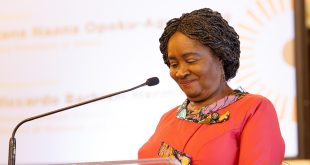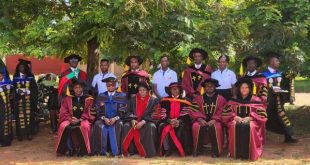L
Ghana’s economic journey under the current administration has been characterized by deliberate fiscal reforms, improved macroeconomic management, and prudent debt restructuring strategies.
As of the fourth quarter of 2025, indicators from the Ministry of Finance, the Bank of Ghana (BoG), and the International Monetary Fund (IMF) collectively suggest that Ghana is on course to exit the IMF’s Extended Credit Facility (ECF) by 2026, a year ahead of schedule. This trajectory, driven by the excellent work and disciplined policy execution by Finance Minister Dr. Cassiel Ato Forson, signals a new phase of economic sovereignty and confidence in Ghana’s homegrown solutions.
Empirical Evidence of Economic Turnaround
1. Fiscal Consolidation and Primary Balance
According to the IMF Fifth Review (September 2025), Ghana achieved a primary surplus of 0.7% of GDP, a significant turnaround from the -4.6% deficit recorded in 2022. Fiscal discipline, expenditure rationalization, and enhanced domestic revenue mobilization have been central to this improvement.
Key reforms, including the rollout of the Integrated Tax Administration System (ITAS) and the Electronic Tax Audit (ETA) mechanism, have improved compliance, leading to a domestic revenue-to-GDP ratio of 17.8% in 2025, up from 13.5% in 2022 (MoF, 2025 Mid-Year Budget Review).
2. Inflation and Monetary Policy Stability
Inflation, which peaked at 54.1% in December 2022, has steadily declined to 18.4% as of September 2025, according to BoG’s latest Monetary Policy Report. This sharp disinflation trend results from the tight monetary stance, cautious fiscal policy, and enhanced food supply chains supported by the government. The central bank’s foreign reserve position has also improved, with gross international reserves hitting $6.1 billion in September 2025, enough to cover 3.5 months of import cover, compared to 2.2 months in 2023.
3. Debt Sustainability and Restructuring Progress
The cornerstone of Ghana’s recovery lies in the successful debt restructuring framework negotiated under Dr. Forson’s leadership. As of October 2025, Ghana has:
• Completed its domestic debt exchange (DDEP), achieving a 94% participation rate.
• Finalized bilateral creditor negotiations under the G20 Common Framework, reducing the present value of debt by approximately $10 billion.
• Re-engaged Eurobond holders with a credible restructuring proposal that targets a debt-to-GDP ratio below 65% by 2028 (MoF, 2025 Debt Sustainability Analysis).
This fiscal re-profiling, coupled with efficient treasury management, has restored market confidence, reflected in a credit rating upgrade from CCC to B- by Fitch Ratings in August 2025.
4. GDP Growth and Structural Transformation
Ghana’s GDP growth trajectory is another testament to fiscal prudence and sectoral diversification. The World Bank’s October 2025 Africa Pulse Report projects Ghana’s GDP to grow by 4.8% in 2025 and 5.2% in 2026, primarily driven by:
• Expansion in agro-processing and renewable energy sectors.
• Rising oil and gold exports, with Brent-linked revenue increasing by 21%.
• Growth in the digital economy, with ICT contribution rising to 5.9% of GDP.
These growth patterns mirror the 2010–2012 recovery model but are now anchored in inclusive, sustainable policy frameworks designed by the Ministry of Finance.
Policy Innovation and Institutional Reforms
Under Dr. Ato Forson, the Ministry of Finance has adopted a data-centric and transparent approach to public financial management:
• The Fiscal Responsibility Act compliance has been reactivated, ensuring that fiscal deficits remain below 5% of GDP.
• The Public Investment Management System (PIMS) has been digitized, enhancing efficiency in project evaluation.
• Ghana’s Medium-Term Revenue Strategy (MTRS 2024–2027) has aligned domestic taxation with growth-enhancing sectors such as agriculture, manufacturing, and green infrastructure.
Furthermore, Ghana’s active participation in the IMF’s Resilience and Sustainability Facility (RSF) has unlocked over $550 million in climate-related funding, positioning the country as a regional leader in sustainable finance.
The Road Ahead: Toward IMF Independence
If Ghana maintains this reform momentum, the IMF’s sixth and final review (expected in mid-2026) will likely mark the end of external dependence, enabling the country to fully transition to a homegrown fiscal framework supported by domestic capital markets and sovereign wealth instruments.
The vision is not merely to exit the IMF programme, but to build resilience against future shocks, whether from commodity price volatility, external debt risks, or global financial tightening. Dr. Forson’s proactive fiscal reengineering is restoring both domestic and investor confidence, evidenced by the return of portfolio inflows totaling $1.4 billion in Q3 2025.
Conclusion
Ghana’s pathway to exiting the IMF programme by 2026 is no longer speculative; it is an empirical reality built on sound policy execution, transparency, and competent fiscal management. The excellent work of Finance Minister Dr. Cassiel Ato Forson, supported by a team of technocrats, is rebranding Ghana’s economic image, from crisis management to sustainable transformation.
In my own words,
“Ghana’s exit from the IMF will not just mark fiscal independence, it will symbolize the triumph of competent leadership over economic chaos.”
References
1. Ministry of Finance (2025). Mid-Year Budget Review Report. Accra: MoF Publications.
2. International Monetary Fund (2025). Ghana Fifth Review under the Extended Credit Facility. Washington, D.C.
3. Bank of Ghana (2025). Monetary Policy Report – Q3 2025. Accra.
4. World Bank (2025). Africa Pulse Report: Economic Update on Sub-Saharan Africa.
5. Fitch Ratings (August 2025). Ghana Sovereign Outlook Revision: B- Stable.
 Home Of Ghana News Ghana News, Entertainment And More
Home Of Ghana News Ghana News, Entertainment And More





